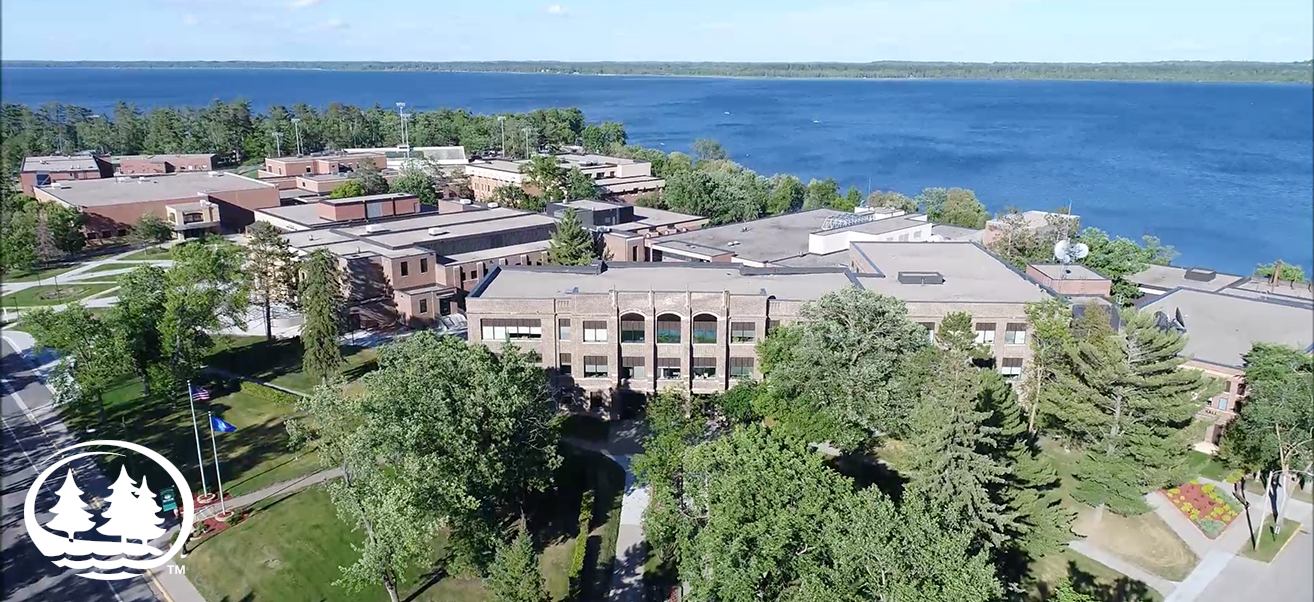
Bemidji State University will launch a new academic program in January 2018 that aims to bring indigenous knowledge and perspectives into the university’s sustainability efforts.
The Gwayakochigewin (click to listen; GWAY-ah-ko-chee-GAY-win) Collaborative — named after an Ojibwe word which means “making things right” — joins the university’s Office of Sustainability, American Indian Resource Center and Department of Languages and Indigenous Studies to create a unique co-curricular program that will fold traditional viewpoints into a modern view of sustainability.
“One of my primary goals as Bemidji State University president is to seek innovative ways to align the university’s academic programs with its fundamental values,” said Dr. Faith Hensrud, president of Bemidji State University and Northwest Technical College. “This project combines our leadership in sustainability with our goal to further increase our engagement with the American Indian nations and culture in our region. This will create a unique and unequaled academic experience for our students.”
Erika Bailey-Johnson, BSU sustainability director and program lead, said the notion of using traditional knowledge and wisdom to improve sustainability efforts is not new, but based on principles that have guided indigenous cultures for centuries.
“The very survival of indigenous peoples has depended on a sustainable relationship with the environment for thousands of years,” she said. “These perspectives and approaches to sustainability — which are quite different from Western world views — have withstood the test of time and are based on a deep respect for Mother Earth.“
The university will begin seeking a faculty member to oversee a new, combined indigenous studies/environmental studies sustainability degree program in September, who will start developing the program in January 2018. The academic program will initially combine available courses in the indigenous and ethnic studies and environmental studies departments, and new courses could be added in the future.
One potential new course is likely be Introduction to Indigenous Knowledge, a survey course intended to stimulate interest in the overall program. Additional topics for the three to four new courses to be developed during the project have not yet been established and will depend on the background and expertise of the incoming faculty member. BSU expects to offer the first course in Fall 2018.
Bailey-Johnson says the time is right for Bemidji State to launch this sort of cooperative co-curricular program.
“This program will help Bemidji State work toward this whole idea of trying to do better,” she said. “This way of thinking about our environment and resources is not new — it’s instilled in a lot of people globally. We just need to re-learn it.”
The project is made possible by a $600,000 grant from the Margaret A. Cargill Philanthropies.
CONTACT
- Erika Bailey-Johnson, BSU sustainability director; (218) 755-2560, ebaileyjohnson@bemidjistate.edu
 Bemidji State University, located amid the lakes and forests of northern Minnesota, occupies a wooded campus along the shore of Lake Bemidji. Enrolling more than 5,100 students, Bemidji State offers more than 80 undergraduate majors and eight graduate degrees encompassing arts, sciences and select professional programs. BSU is a member of the Minnesota State system of colleges and universities and has a faculty and staff of more than 550. The university’s Shared Fundamental Values include environmental stewardship, civic engagement and international and 1multicultural understanding.
Bemidji State University, located amid the lakes and forests of northern Minnesota, occupies a wooded campus along the shore of Lake Bemidji. Enrolling more than 5,100 students, Bemidji State offers more than 80 undergraduate majors and eight graduate degrees encompassing arts, sciences and select professional programs. BSU is a member of the Minnesota State system of colleges and universities and has a faculty and staff of more than 550. The university’s Shared Fundamental Values include environmental stewardship, civic engagement and international and 1multicultural understanding.
2017-B-S-002
